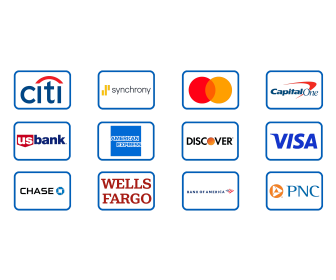How Many Credit Cards Is Too Many
There’s no magic number when it comes to how many credit cards you should have — but there’s definitely such a thing as too many for your lifestyle. Some people thrive with five or more cards, while others struggle to manage just one. The key is understanding how multiple cards affect your credit score, finances, and daily habits. Let’s break down the balance between smart diversification and unnecessary risk.
1. The Short Answer: It Depends on You
The ideal number of credit cards varies from person to person. It depends on how organized you are, how you spend, and how disciplined you can be with payments. What helps one person’s credit might harm another’s.
- Beginners: 1–2 cards are plenty to build credit and earn simple rewards.
- Experienced users: 3–5 cards can optimize rewards and benefits without becoming unmanageable.
- High spenders or travelers: 5+ cards can be fine if all are paid in full and used strategically.
2. How Multiple Cards Can Help
Having several credit cards can actually improve your credit score — if you use them wisely. The benefits come from increasing your total available credit and diversifying your accounts.
- Lower utilization: More available credit means lower usage ratios.
- Better rewards: You can match each card to a specific spending category (like dining, groceries, or travel).
- Backup options: Multiple cards ensure access if one gets lost, declined, or compromised.
3. When You Might Have Too Many
The danger of having too many cards isn’t in the number itself — it’s in losing control. If you start missing payments, forgetting due dates, or chasing bonuses, that’s a sign your portfolio is too large for your current system.
- Warning signs: You can’t remember your card balances or payment dates.
- High annual fees: You’re paying for cards that don’t return enough value.
- Overlapping rewards: Several cards may duplicate the same benefits unnecessarily.
4. How Many Cards Affect Your Credit Score
Credit scoring models consider multiple factors, and the number of cards can influence several of them at once. Managed well, more cards can actually raise your score — but mismanagement has the opposite effect.
- Credit utilization: More total credit available can lower your utilization ratio — a positive effect.
- Payment history: On-time payments across several cards strengthen your score.
- Average account age: Opening too many new cards too quickly can lower your average age of credit — a negative effect.
- Hard inquiries: Each new application can cause a small, temporary dip.
5. How to Manage Multiple Cards Responsibly
Managing multiple cards takes discipline — but it’s completely doable with structure. The goal is to simplify payments and track spending while taking advantage of each card’s benefits.
- Set autopay: Automate at least the minimum payment on every card.
- Use reminders: Sync all due dates or set calendar alerts.
- Track benefits: Use a spreadsheet or app to note each card’s rewards, renewal date, and perks.
- Review quarterly: Cancel or downgrade cards that no longer provide value.
6. The Smart Way to Add New Cards
Adding new cards should be intentional, not impulsive. If you already have several, only apply for another if it fills a clear gap in your setup — like better rewards on groceries or no foreign transaction fees.
- Space out applications: Wait at least 3–6 months between new cards.
- Check pre-approval: Avoid unnecessary hard inquiries by checking eligibility first.
- Match purpose to card: Every card should serve a defined role in your strategy.
Expert insight: There’s no universal “too many.” It’s too many when you start paying interest, missing payments, or feeling stressed about tracking them. The right number is the one you can manage easily, pay off fully, and use to your advantage.
Final Thoughts
How many credit cards is too many depends entirely on your financial habits and discipline. Two cards may be perfect for one person and overwhelming for another. Focus on quality over quantity, keep balances low, and manage payments automatically. In credit, control matters more than count — always.
Not financial advice. Credit card approval, terms, and scoring impacts vary by issuer and individual profile. Always review your financial situation before opening new credit lines.



